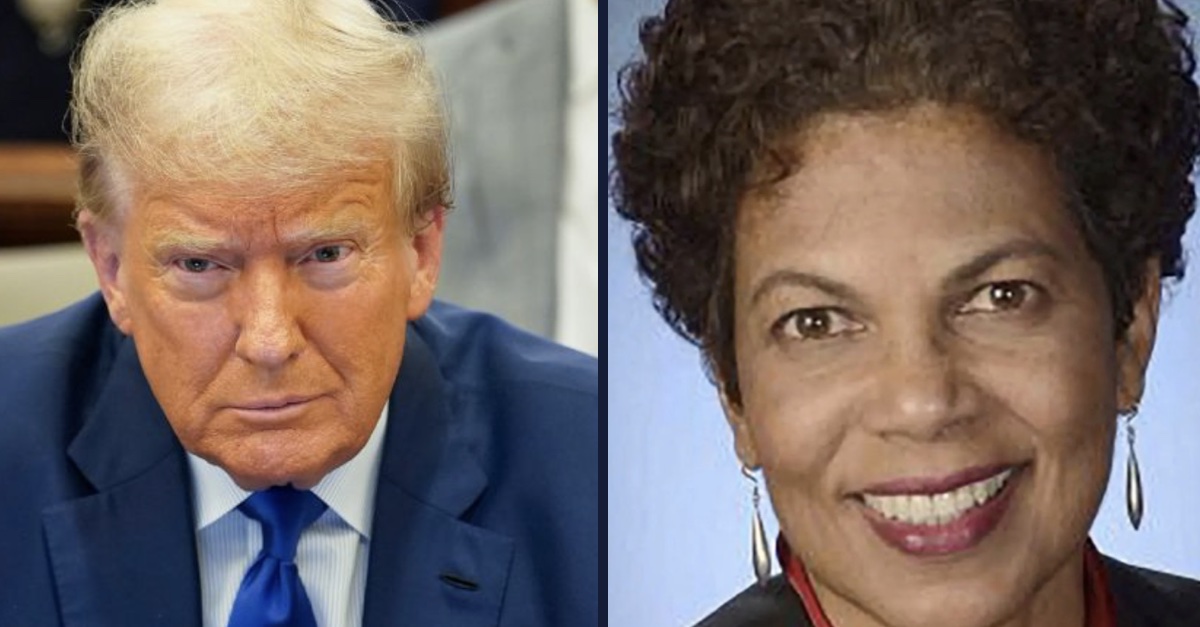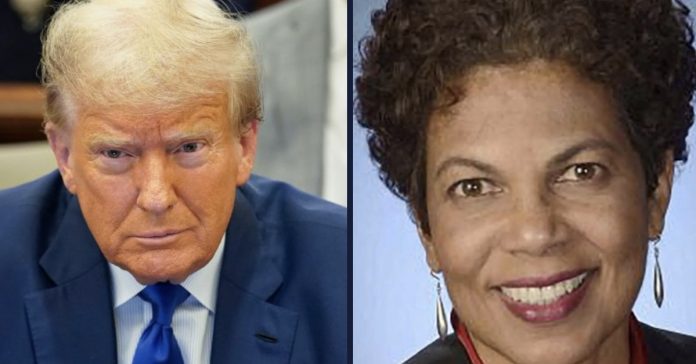
Donald Trump (AP Photo/Seth Wenig, POOL), Donald Trump, U.S. District Judge Tanya Chutkan (court photo)
While Donald Trump appeals his Jan. 6 trial judge’s partial gag order in the D.C. Circuit, the judge partially ruled in the former president’s favor by granting extensions of key deadlines, even if those extensions fell well short of what the defense sought.
U.S. District Judge Tanya Chutkan pushed back a deadline for pretrial motions to compel discovery and motions for Rule 17(c) subpoenas from Nov. 9, which would have been tomorrow. Those extensions, with regard to discovery, amount to a couple of weeks (until after Thanksgiving) and, with regard to subpoenas, add up to approximately one month of extra time — with some motions to drop after Christmas and New Year’s Day.
The judge, a Barack Obama appointee, noted that Trump and his lawyers had asked her to push back the subpoena motions deadline all the way until Feb. 9, 2024, which would have created a serious time crunch for the scheduled March 4 trial.
“Defendant’s requested deadline of February 9, 2024 for motions for Rule 17(c) subpoenas illustrates the problems inherent in additional delay,” Chutkan wrote. “On that schedule, those motions would not be ripe until March 1, 2024, three days before the trial is scheduled to begin — after which the court would have to rule, the subpoenas (if any) would have to issue, the materials would have to be produced, and Defendant would have to review them, all of which could take considerable time” and “would frustrate Rule 17(c)’s purpose ‘to expedite the trial by providing a time and place before trial for the inspection of the subpoenaed materials.””
Still, the judge said, pushing back that deadline back by a month did not pose a problem for a pretrial briefing schedule or her ability to render a decision on the motions ahead of the trial date.
Chutkan did not, however, offer Trump as much relief on a deadline for motions to compel discovery from special counsel Jack Smith, and she indicated that “[m]ost” of the former president’s arguments on the subject were “unpersuasive.”
The Trump team had asked, as Chutkan summarized the request, that “motions to compel be due on a rolling basis, within ten days of the parties meeting and conferring with respect to discovery requests as they arise, based on ‘discovery the prosecution has not yet produced, or which President Trump has not currently reviewed.’”
The judge wrote that she was particularly unpersuaded by Trump lawyers’ argument that Jack Smith’s discovery production was “not well organized,” as “the emails therein are not compiled with their attachments and replies.”
The “sole organizational defect” the defense pointed to is “actually a best practice,” Chutkan wrote.
“First, the government points out that the sole organizational defect cited by the defense was actually a best practice — rather than compiling the email materials themselves, the government provided those materials in a format that would easily allow the defense to compile them in their preferred manner — a point to which the defense does not respond,” the judge said.
But the judge did include a failsafe for Trump after the two-week extension for motions to compel, in the event that Jack Smith lags behind on his discovery production:
After that deadline, Defendant may seek leave to file any additional motions for good cause — for instance, if the motions are related to discovery produced by the government following that deadline. That will preserve Defendant’s right to raise motions with respect to all government discovery.
This is what the deadlines look like now:
Motions to compel shall be filed by November 27, 2023; any oppositions to those motions shall be filed by December 11, 2023; and any replies in support of those motions shall be filed by December 18, 2023.
Motions for Rule 17(c) subpoenas shall be filed by December 13, 2023; any oppositions to those motions shall be filed by December 27, 2023; and any replies in support of those motions shall be filed by January 3, 2024.
Read the opinion and order here.
Have a tip we should know? [email protected]

